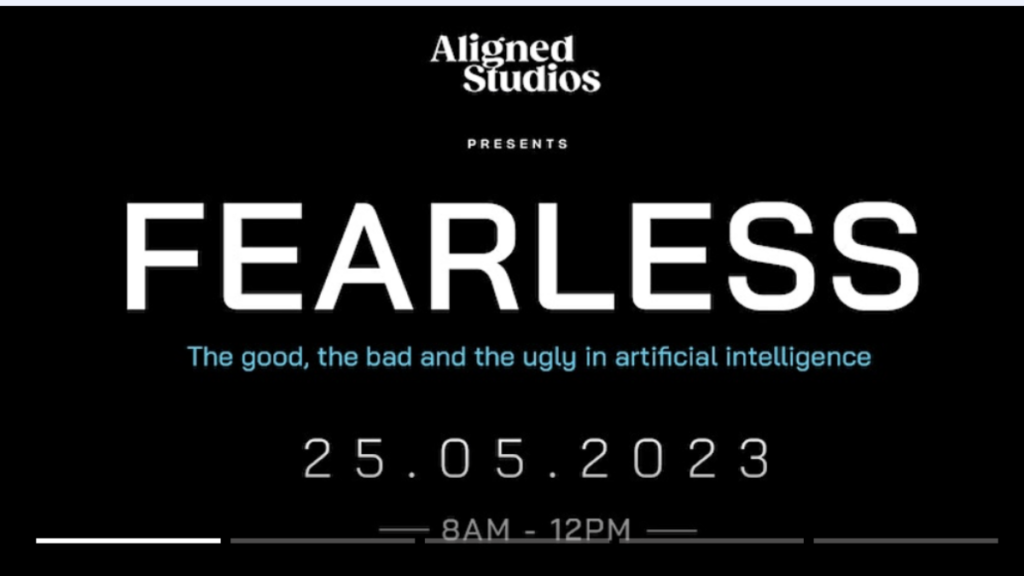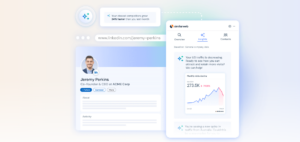By Nicole Yershon, Emma Jackson and Katie Bell
If you’ve been online at all in the last year you could be forgiven for thinking Artificial intelligence (AI) is the new black. And as with everything that achieves this level of attention, AI has its fans and detractors.
This revolution isn’t a passing fad—the impact is already enormous. It’s relatively simple to see applications everywhere with many people singing its praises whether new products or productivity hacks. However, people are also already saying it can’t be trusted, denying what we think is inevitable by calling it error-prone, unethical, and biased, but this is V0.1, and these things will improve— we’re at the beginning. We are nowhere near its full potential.
And by the same token, those will always be those who would exploit these technologies for negative ends. Already we know that this technology can write code to exploit weaknesses in the system; it can recreate itself on its own and learn languages without being asked to; there are some very dystopian aspects, and as we’ve heard, the people that are creating the large language models themselves have no idea what they are capable of.
It seems that everybody is already forming an opinion before the technology and its impact is understood.
“It’s the equivalent of a nuclear apocalypse.” “300 Million jobs will be lost, according to Goldman Sachs.” ”No industry is immune.” ”Expertise that was considered untouchable is now already replaced.” ”The industry needs to pause until we understand the monster we’ve created.”
You have no idea whether I wrote this article or whether my favourite Generative AI did the work. Pretty soon, will anyone care? Without question, you will have questions like these racing around your head and need to decide where your own viewpoint is at.
We believe the key questions are relevant for every industry, whether, for example, it is Education, Health, Creative Industries, Finance, or Retail; the themes are going to be similar, and we will examine the good, the bad, and the ugly.
We’ve assembled a series of breakfast events exploring the impact of all this. The questions and the conversations that result are going to be fascinating.
AI has incredible power across all industries—imagine the field of education. AI can, at scale and far quicker than us, personalise learning experiences, automate administrative tasks, and learn to adapt to individuals’ learning styles, leading to better engagement and success rates with students. In specific ways, it can dramatically support those with learning disabilities. The list is endless.
But what does that do to those already working in education? What will those displaced do? How do we support the displaced at the same time as bringing in the new? Does this mean we need to change the entire working week? What does this mean for the economy? Do we need to rethink everything around how society and capitalism work?
Yes, big questions.
And we are gathering a series of big talents to discuss, provoke, stimulate, and challenge us. They will offer their thoughts through opening arguments, panel discussions, and optimistic ideas for the future. This will give us all firmer foundations on which to build our opinions and provide tools to help us reframe our decisions.
This is just the tip of a massive iceberg of questions which is why we see this as a series of events, and we are starting in London in May at White City House. Places will be very, very limited, so please let us know well in advance and save the date THURSDAY 25TH MAY 8.30-12 noon, Soho House White City https://www.eventbrite.co.uk/e/fearless-if-ai-is-the-answer-what-are-the-questions-tickets-619028961287
This event results from a collective effort of four highly skilled women spanning three decades working in technology and creativity. Katie Bell at Aligned Studios, Nicole Yershon at The NY Collective, and Emma Jackson at The 5Gs all in collaboration with New World Tech (NWT)






